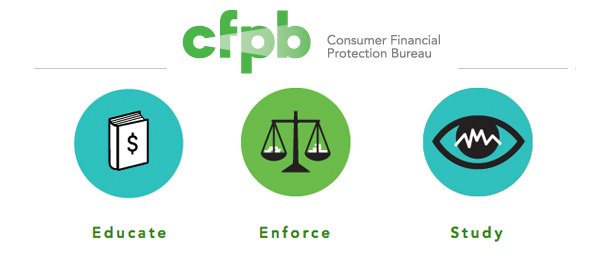U.S. DoJ, Consumer Financial Protection Bureau Investigate Toyota, Honda, Other Automakers' Credit Arms For Lending Bias
According to regulatory filings by Toyota Motor Credit Corp., the giant automaker’s car financing arm, and American Honda Finance Corp., which fills a similar role for Honda, the United States Consumer Financial Protection Bureau and the Department of Justice are investigating major auto manufacturers for possible lending bias based on race, which would be a violation of the 1974 Equal Credit Opportunity Act. According to Bloomberg, the agencies are looking into how loans that the automakers’ credit companies provide to auto dealers are priced. Bloomberg reports that as many as seven car companies have been asked for data that may be related to the borrowers’ races and interest rates charged. Both government agencies declined to comment on the matter.
The Justice department and the CFPB are apparently looking into what the consumer protection agency calls “dealer markup”, what the industry refers to “dealer participation” or “dealer-assisted finance”, the practice of lenders allowing dealers to add to the interest rate they are charged by the automakers’ credit arms so they can pocket the difference. Dealers say that the added interest is a fair price for arranging the loan, processing the paperwork and related services. Consumer activists say the arrangement gives dealers an incentive to push more expensive loans.
In March, the CFPB warned banks that they face the agency’s enforcement procedures if they are found to be funding discriminatory vehicle loans provided by car dealers. At the time, car dealers widely criticized the agency for what the dealers say is an attempt to get around statutory restrictions on the CFPB’s power. The 2010 “Dodd-Frank” law that created the agency explicitly exempted automobile dealers from being regulated by tha CFPB. Dealers say that the CFPB is using the automakers’ credit arms to do what Congress specifically prohibited the government from doing. Members of Congress have asked the agency how it will determine the existence of discrimination.
The CFPB said last year that it would use a controversial legal theory known as “disparate impact” which says that even if there is demonstrably no intention to discriminate, if statistical analysis shows that the result of policies is over or under representation in the results relative to demographics, that itself can be used as proof of discrimination. Because the theory is based on statistical analysis, the agencies have requested a large amount of data on borrowers’ races and the interest rates they were charged. Critics of “disparate impact” say that besides ignoring intent, an important factor in American jurisprudence, the theory’s advocates apply it in a discriminatory manner themselves.
More by TTAC Staff
Latest Car Reviews
Read moreLatest Product Reviews
Read moreRecent Comments
- Brian Uchida Laguna Seca, corkscrew, (drying track off in rental car prior to Superbike test session), at speed - turn 9 big Willow Springs racing a motorcycle,- at greater speed (but riding shotgun) - The Carrousel at Sears Point in a 1981 PA9 Osella 2 litre FIA racer with Eddie Lawson at the wheel! (apologies for not being brief!)
- Mister It wasn't helped any by the horrible fuel economy for what it was... something like 22mpg city, iirc.
- Lorenzo I shop for all-season tires that have good wet and dry pavement grip and use them year-round. Nothing works on black ice, and I stopped driving in snow long ago - I'll wait until the streets and highways are plowed, when all-seasons are good enough. After all, I don't live in Canada or deep in the snow zone.
- FormerFF I’m in Atlanta. The summers go on in April and come off in October. I have a Cayman that stays on summer tires year round and gets driven on winter days when the temperature gets above 45 F and it’s dry, which is usually at least once a week.
- Kwik_Shift_Pro4X I've never driven anything that would justify having summer tires.


































Comments
Join the conversation
Could someone at TTAC please unsubscribe me from the site ? I contacted the site a couple of times and asked to be removed before. Thank you.
I have posted all over this thread, but I want to restate my suggestion that state level sting operations such as those directed at realtors would work better than these litigation by math schemes if the real desire is to reduce racism in lending. Real estate is a good example. Social scientists agree that people will not naturally integrate in housing choices. Quite the opposite, if you started with perfect diversity, over time, races would segregate by choice. You could easily prove steering discrimination by realtors using statistical results as is being done here even if the realtors were being particularly guarded and steering for integration on purpose! However, I think the real estate business is in better shape on this issue than car dealers. The realtors know there are active sting operations out there, and the bad actors will be the ones busted, no the banks or the companies, but the individual ad actors. They therefore have a strong incentive to conform.